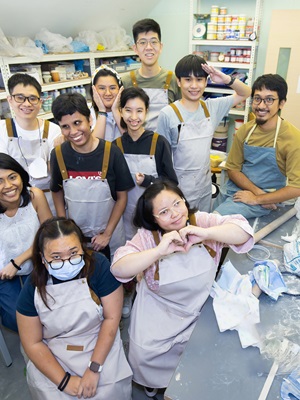
Angela Tan

Executive Director @ ART:DIS Singapore Ltd
Angela Tan is the Executive Director of ART:DIS (Arts & Disability Singapore), a non-profit founded in 1993 that champions education and livelihood opportunities for persons with disabilities through the arts. At ART:DIS, she oversees initiatives ranging from community programmes across diverse disciplines to professional development opportunities and its flagship employment platform, ART:DIS Studio. Previously with Singapore’s National Arts Council, Angela led major initiatives such as Singapore Art Week, the Civic District Precinct Planning, and the Public Art Trust, while also pioneering funding and capacity-building schemes that connected the arts with the social and healthcare sectors. Today, she brings this experience to ART:DIS, embedding sustainability, partnerships, and innovation into its mission to transform lives through art.




